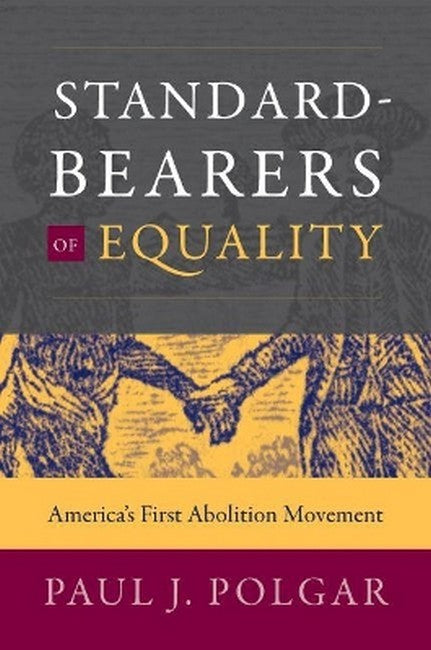Paul J. Polgar is assistant professor of history at the University of Mississippi.
Request Academic Copy
Please copy the ISBN for submitting review copy form
Description
"An original contribution to the growing field of scholarship related to abolition in the North. . . . [A] fresh take on a topic of increasingly important historical value to scholars of the mid-Atlantic, the North, and New Jersey."--New Jersey Studies "Polgar . . . here seeks to expand the breadth, depth, and length of what he terms 'the first abolition movement' . . . . In accentuating the first movement abolitionist program's contributions, Polgar underscores the degree to which those who supported 'gradualist' antislavery helped set the free North and slave South on the tortured road to civil war that ultimately abolished slavery and provided a blueprint for equal rights and citizenship for black Americans during Reconstruction and in 20th-century civil rights campaigns."--CHOICE "Polgar has provided a useful analysis of the complexities of the abolitionist and colonization movements in the early republic. Deeply researched and capacious in its use of both primary and secondary sources, Standard-Bearers of Equality is a painful reminder of a moment in America's history of slavery and racism and of paths and opportunities not taken."--Journal of Ecclesiastical History "Polgar successfully uncovers the aims and efforts of an earlier abolition movement whose significance was obscured by the push for immediate abolition. . . . [W]orth a read by anyone seeking to understand how an organized abolition movement emerged in the United States and how this movement envisioned and enacted its goals in response to the forces it encountered."--H-Nationalism "With analytic subtlety as well as deep archival research, Polgar reveals how relatively privileged northern whites worked closely with blacks. . . . and shows that they required fearless, imaginative, and resolute political activism to overcome powerful proslavery interests."--Sean Wilentz, New York Review of Books

